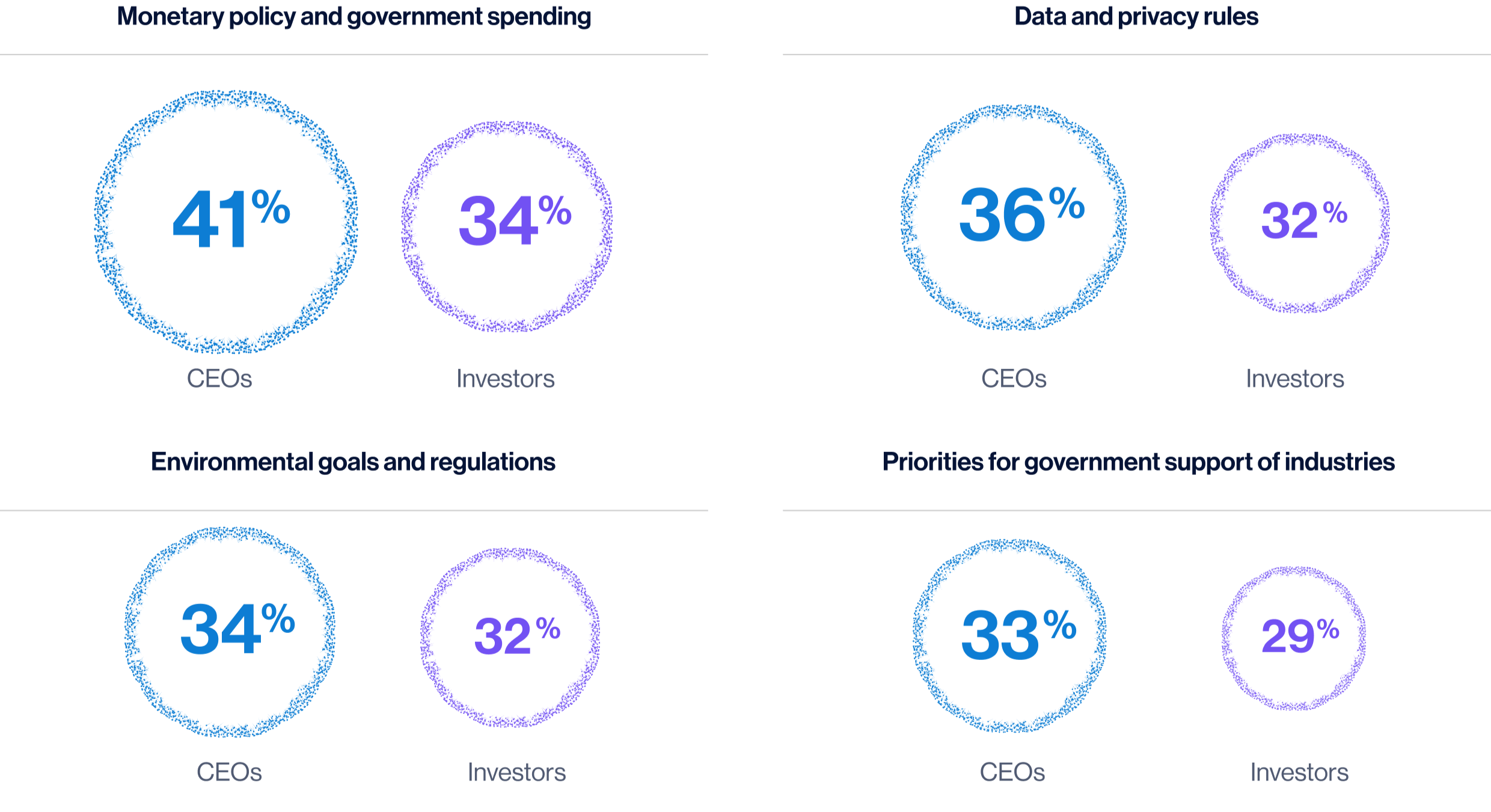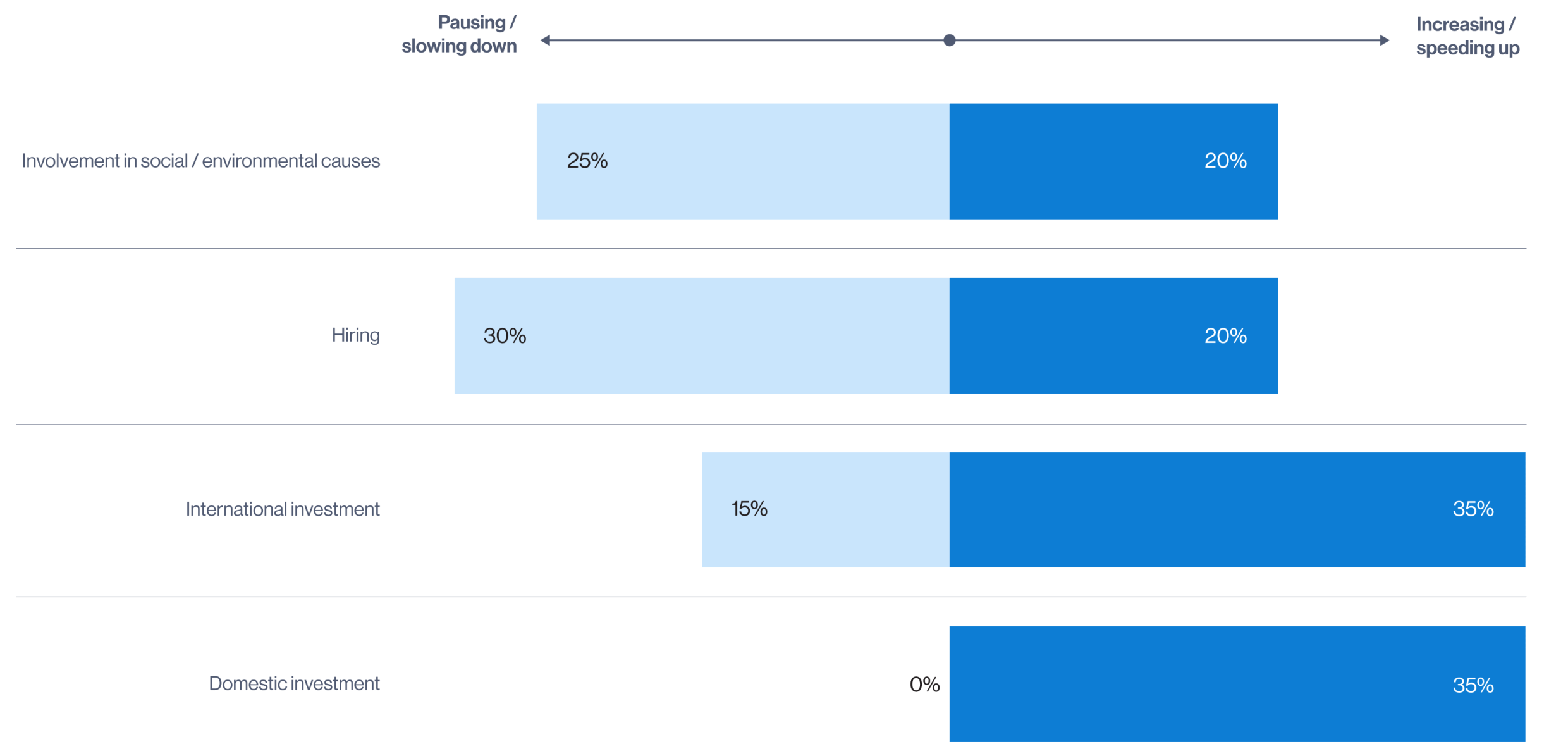Disruption
CEOs and investors are both preparing for a less disruptive 2024 with one notable exception: half of CEOs are positioning their organizations for greater domestic political disruption. All eyes are on elections in 2024, as historic numbers of voters head to the polls, many in key geographies. The question remains over what form(s) domestic disruption will take and whether outright social unrest or more specific policy and/or regulatory risks will emerge (see Figure 15).
Question: In which of the following areas is your business / should leading corporations be preparing for further disruption in 2024? (select all that apply)

More than half the world’s population potentially will be heading to the polls over the next 12 months. That includes significant elections slated in the regulatory powerhouses of the EU and U.S. As a result, CEOs and investors are bracing for potentially sudden and significant changes in policy that could negatively impact businesses.
Policy questions loom large, and monetary, regulatory and industrial policy questions are top of mind for CEOs and investors. More traditional geopolitical risks such as China, Ukraine, migration and even equality/inclusion issues feature less prominently.
Question: Looking ahead to future elections and the possibility of sudden shifts in policy and regulatory policies, which of the following policy disruptions would have the biggest negative impact on your business / leading corporations? (select all that apply)

Every U.S.-based CEO polled is making some type of adjustment to their business strategy in anticipation of the 2024 presidential election. With election results likely to be down to the wire, the decisions of a handful of voters in a few purple U.S. states may yet determine the direction of the global economy for years to come.
61% of U.S. CEOs are increasing investments in anticipation of the 2024 U.S. presidential election
Question: Thinking about the upcoming U.S. presidential election in 2024, which of the following reflect your business strategy regarding its outcome? (select all that apply)
